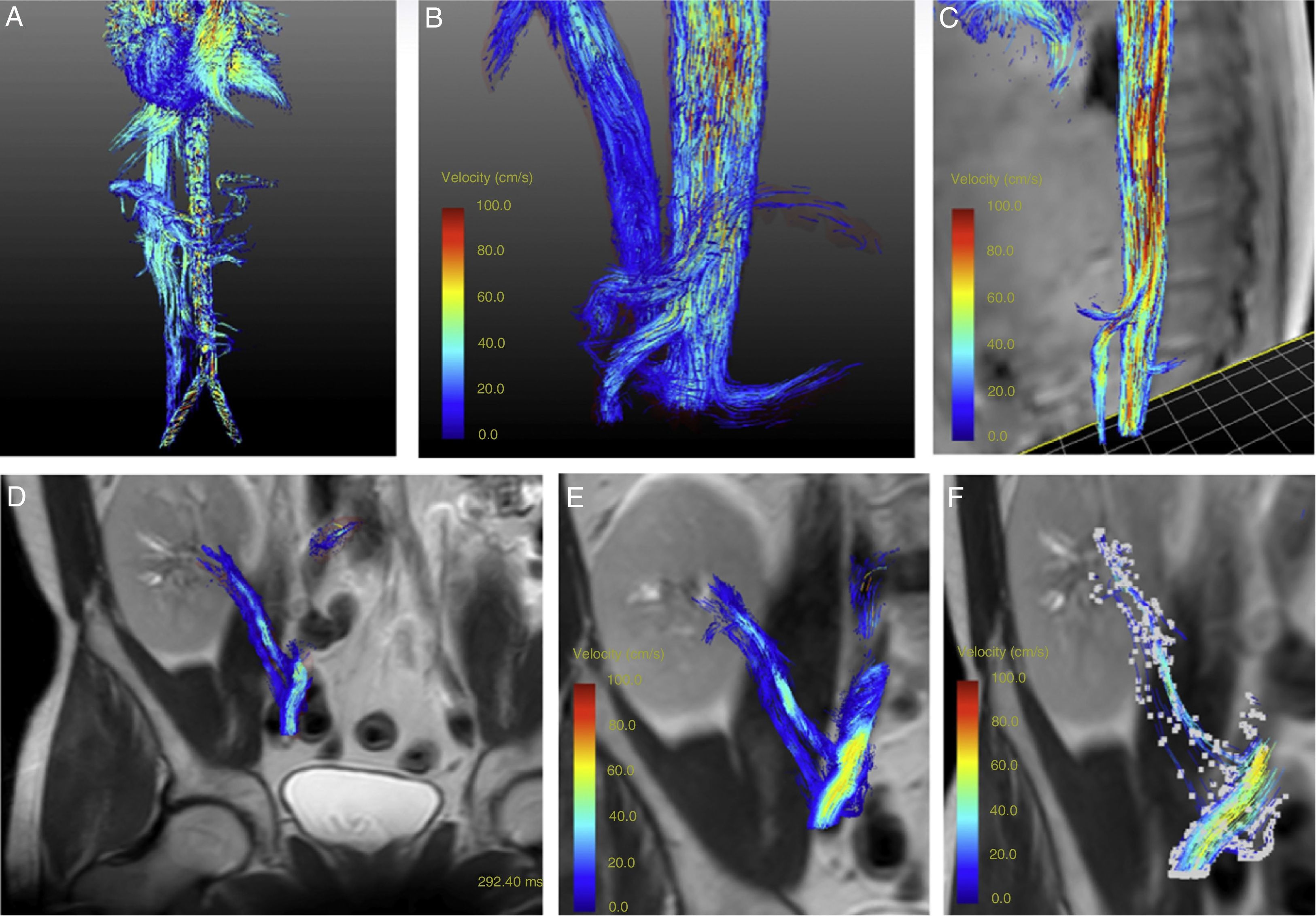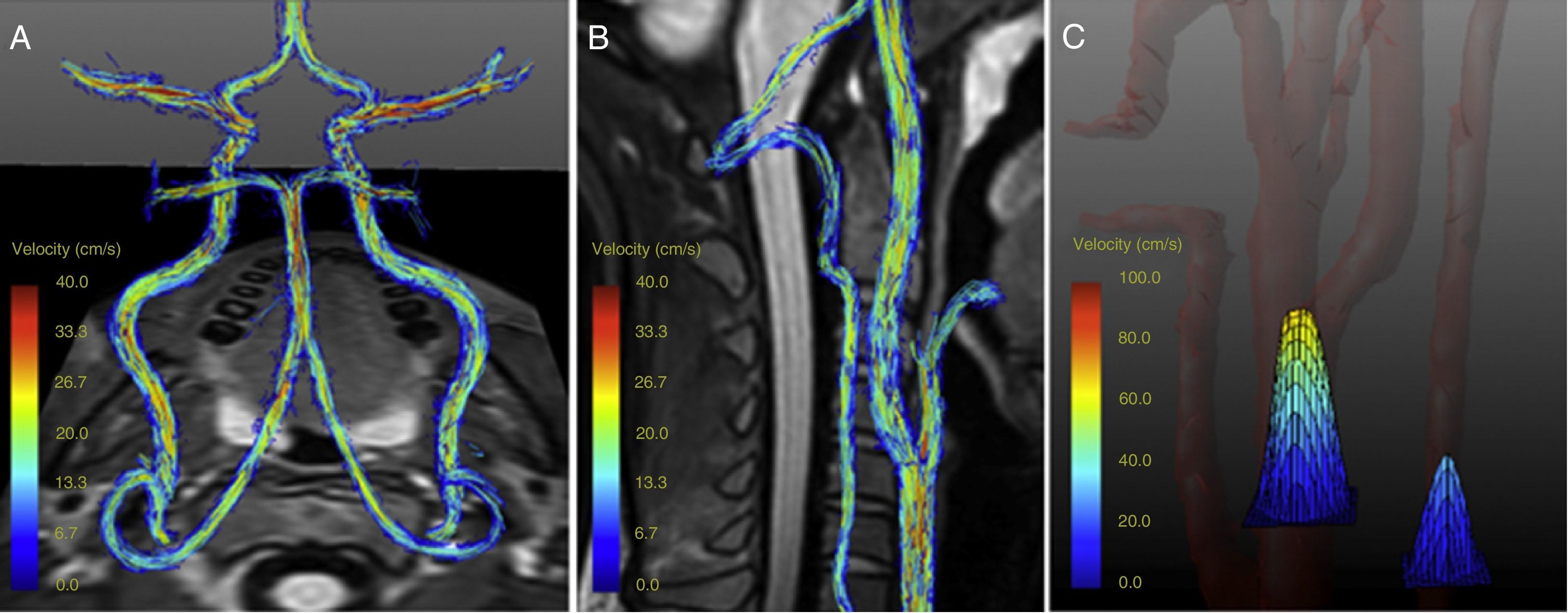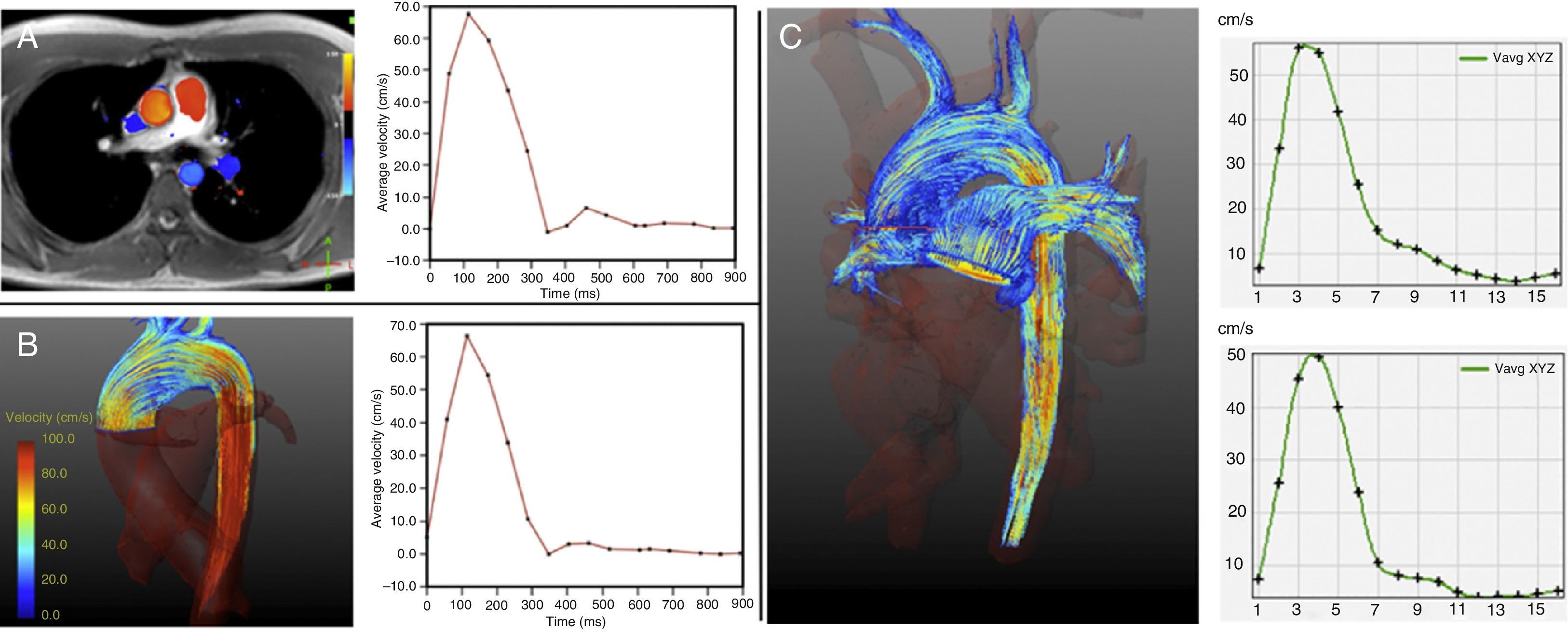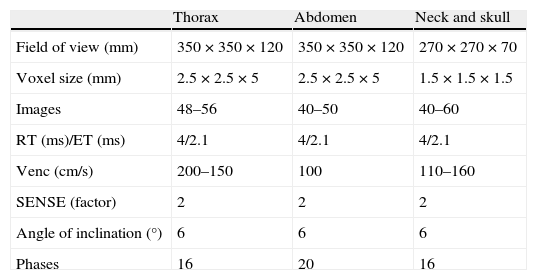The 4D Flow MRI technique provides a three-dimensional representation of blood flow over time, making it possible to evaluate the hemodynamics of the cardiovascular system both qualitatively and quantitatively. In this article, we describe the application of the 4D Flow technique in a 3T scanner; in addition to the technical parameters, we discuss the advantages and limitations of the technique and its possible clinical applications. We used 4D Flow MRI to study different body areas (chest, abdomen, neck, and head) in 10 volunteers. We obtained 3D representations of the patterns of flow and quantitative hemodynamic measurements. The technique makes it possible to evaluate the pattern of blood flow in large and midsize vessels without the need for exogenous contrast agents.
La técnica de resonancia magnética 4D Flow permite evaluar cualitativa y cuantitativamente la hemodinámica del sistema cardiovascular representando en tres dimensiones los patrones de flujo sanguíneo en el tiempo y cuantificando variables hemodinámicas. En este trabajo describimos la técnica 4D Flow en un equipo de resonancia de 3T y adicionalmente se exponen, además de los parámetros técnicos, las ventajas, las limitaciones y las posibles aplicaciones clínicas. Para esto estudiamos a diez voluntarios con la técnica 4D Flow en diferentes áreas corporales (tórax, abdomen, cuello y cráneo) con la que obtuvimos representaciones tridimensionales de los patrones del flujo y medidas cuantitativas hemodinámicas. La técnica permite evaluar los patrones de flujo sanguíneo en vasos grandes y medianos sin la necesidad de contrastes exógenos.
Artículo
Comprando el artículo el PDF del mismo podrá ser descargado
Precio 19,34 €
Comprar ahora
















